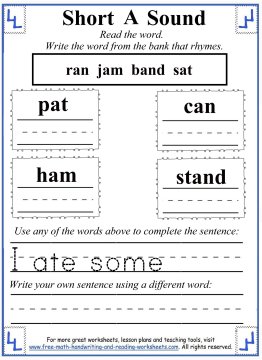
Many agree that introducing short vowels first with word families containing the same vowel (same-vowel word families) provides more support for students before jumping into word lists with a mixture of short vowels in CVC words (mixed short vowels) in isolation. This is the next developmental step to move students from isolating individual phonemes to phonological blending. Knowing that there are patterns within the English Language and being taught how to recognize and look for them when encountering new words is a powerful, impactful shift within a students’ learning process! When should you introduce short vowels?Īs soon as students can identify beginning consonant sounds in CVC words and are showing some success in using consonants in the final position of words, it’s time to practice identifying short vowel sounds in CVC words. This understanding also helps them connect new learning to previously learned words and word pattern concepts. Students need help seeing that many words belong to word families or have similar patterns so that every word they encounter does not present itself as a new learning challenge for them.

This is especially true if hearing and repeating sounds, spelling, or reading at their developmental level comes with difficulty for them.

👉 Without direct instruction, some students do not readily grasp that words in the English language are made up of common patterns and letter pairings. With the introduction of short vowels, students begin to learn two key truths about the English language:ġ) Many words are made up of a consonant, followed by a vowel, followed by another consonant (CVC).Ģ) When a word is made up of a CVC pattern, the vowel sound in the middle is almost always short. Prior to being introduced to short vowels, students are hard at work learning that consonant sounds can be represented with letters in the alphabet. Short vowels are the gateway to students recognizing the presence of patterns within the English Language. U: cup, hut, cut, pup, mud, rug, tug Why is teaching short vowels important? Here are some examples of a, e, i, o, and u words that have short vowel sounds:


 0 kommentar(er)
0 kommentar(er)
